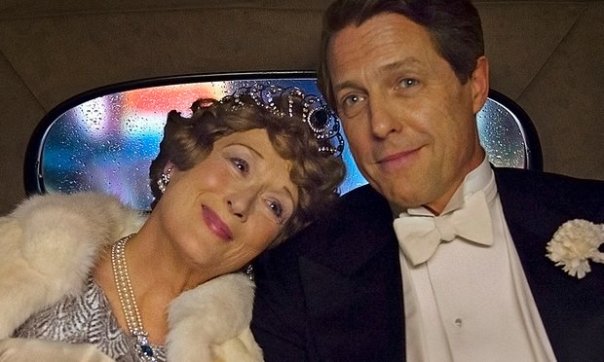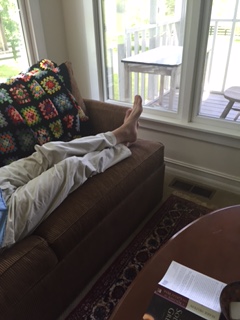
Dear Red Prius,
My first car was a bright blue sedan that I drove to Atlanta when I was 22. I don’t remember the brand, only that I hated how visible it made me, especially since I was not the best driver.
I traded the blue bomber in for a used telephone “van” that had been refurbished by Ralph—his first entrepreneurial venture was buying and fixing up used phone trucks, then selling them to counterculture types like me; the streets of Midtown Atlanta were full of Ralph’s trucks in the early 1970s.
The brakes went out on my van a week after I bought it. I was rounding a curve and ended up down an embankment. Fortunately I wasn’t hurt. Naturally Ralph felt terrible. He helped me fix the van and sell it.
(Actually, Ralph disputes my car history, says I got the blue bomber after the truck disaster, and he may be right. In any case I don’t remember what I drove next.)
We got married five years later, and for the next multiple decades I drove a series of practical, second-hand sedans (with baby seats), SUVs (for carpools and horse-trailering), and (once the kids were gone) compacts. They were all non-descript, aside from the dents I added, and I could care less.
A year and half ago, though, I got you, Red Prius. I bought you for practical reasons like gas mileage and comfort, etc., and I admit that I chose your red color because you were cheaper than the silvery blue model.
The irony is that these days what I love most about you is your color. It makes you So Visible, so easy to spot among the sea of tans, blacks, grays and whites on every road and in every parking lot.
I often find myself writing here about the difficulties, the frustrations, the borderline depression care-giving causes me. I think one of my secret worst fears is that my memory is going too. I said this to a friend recently and she laughed, “But Ralph isn’t contagious.”
Maybe not, yet I often feel as if my brain is clogged with the details of thinking for two. An adage of care-giving is that if we are tense or irritable, our cognitively impaired spouses (or parents) sense and react in kind. The flip side is that I am vulnerable to catching Ralph’s anxiety, and when I’m anxious my brain does not function at its best.
Lately I have an urge to simplify: the less I have to worry about the better. Less stuff means less stuff to keep organized and clean without Ralph’s help. Fewer commitments mean fewer complications to arrange for Ralph. But I also want to stay active and involved. Simplification can be a slippery slope that I don’t want to begin sliding down too fast.
Red Prius, you have been a godsend. It takes one item off my overloaded mental table—no more walking out of the supermarket or doctor’s office or bank or lawyer’s meeting or movie theater or restaurant or political meeting worried where I parked. One glance each way or a click of my key button and there you are, Red Prius, brightly reminding me that I am in control, at least to the best of my ability…A small comfort maybe, but it’s the small comforts that count.
So thanks for making my life better Red Prius. I promise to take care of you as well as I take care of Ralph.
Gratefully,
Alice



 I snuggle with Lola. I baby-talk to her the way I always made fun of other dog owners for doing. I encourage her to lie on the bed with me while I drink my morning coffee (especially since Ralph prefers to sit outside with his first cigarette). For the last month we have been taking classes together to make her more obedient. She now comes as soon as I call and stays sitting in “place” until I tell her otherwise. Along with obedience, she has become much more attached to me. All I do is look her way and she is by my side licking my ankle.
I snuggle with Lola. I baby-talk to her the way I always made fun of other dog owners for doing. I encourage her to lie on the bed with me while I drink my morning coffee (especially since Ralph prefers to sit outside with his first cigarette). For the last month we have been taking classes together to make her more obedient. She now comes as soon as I call and stays sitting in “place” until I tell her otherwise. Along with obedience, she has become much more attached to me. All I do is look her way and she is by my side licking my ankle.





 (This crazy quilt belonged to my grandmother. Note the centennial snippet.)
(This crazy quilt belonged to my grandmother. Note the centennial snippet.)